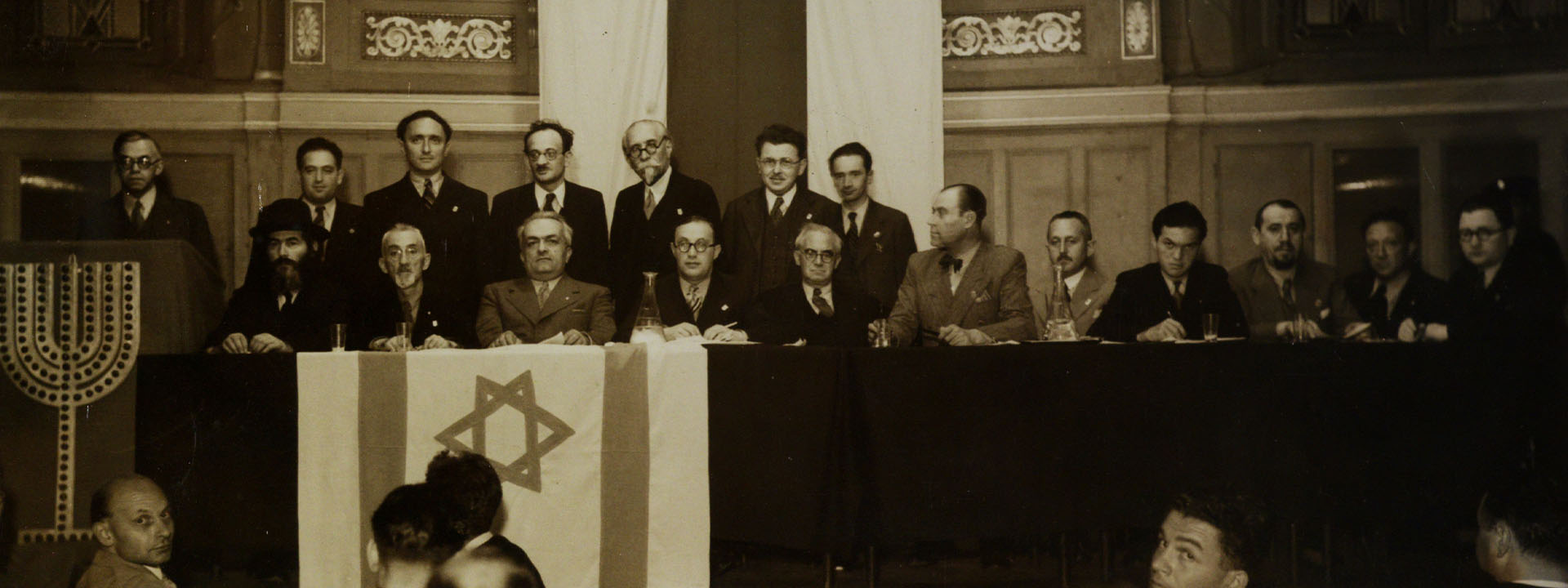The declaration of the establishment of the State of Israel was the long-awaited culmination of the Zionist enterprise, although the vision of a national home could not have been realized without the leadership of Zionism’s founders. Among Zionism’s leaders were writers, intellectuals, and local Zionist activists from various countries who joined the Zionist leadership. A number of early forerunners also made significant contributions to what would later evolve into the Zionist movement.
In the public consciousness, Theodor (Binyamin Ze’ev) Herzl is considered the symbol of the Zionist leadership. He was a journalist who was inspired by the Zionist idea following the shock of the Dreyfus Affair. In 1897, he initiated the convening of the first Zionist Congress, which established the Zionist Organization that would serve as the umbrella group for all the Zionist bodies. Herzl is considered the father of political Zionism, who turned the Zionist vision from a utopian dream into an achievable political goal.
Another leader, who preceded Herzl and whose contribution is not as well-known, is the writer and thinker Asher Zvi Ginsberg. Known by the penname Ahad Ha’am, he was the founder of "Spiritual Zionism". In 1889, he published his article “This is not the way!” (Lo zu haderech!) in which he opposed those encouraging Jews to immigrate to a land which he felt lacked suitable spiritual and physical infrastructure. According to him, it was better to first establish a spiritual-Jewish center in the Land of Israel to strengthen the cultural and spiritual life of the Jewish people.
The Leader Who Became the First President
Another leader whose contribution is often overlooked is Chaim Weizmann, who, after many years in the Zionist leadership, was appointed the country’s first president. Weizmann, who was a world-renowned scientist, is considered the father of "Synthetic Zionism", which called for the combination of political and practical efforts in Palestine. Weizmann led the efforts to obtain the Balfour Declaration. He headed the Zionist Organization and founded the Jewish Agency, the Hebrew University and the Ziv Institute (later the Weizmann Institute).
Among Zionism’s major figures, Ze’ev Jabotinsky, a writer and journalist who founded Revisionist Zionism, the Betar movement and the Jewish Legion (a unit of the British Army during World War I), was considered an extremely controversial figure. Jabotinsky foresaw the horrors of the Holocaust and therefore pushed for drastic steps to advance the establishment of the state. He sought a Jewish state on both sides of the Jordan River and called for a tougher Zionist response to Arab aggression and British policy through military force.
Thousands of historical items collected in the National Library testify to the paths, views, actions as well as the private lives and personalities of the Zionist leaders. The Library’s collections contain books, articles, protocols, rare photographs, correspondence and other materials that illuminate various political, human and emotional aspects of the Zionist leadership. The National Library is also the repository of Ahad Ha’am’s personal archive.

